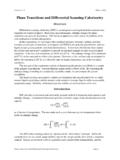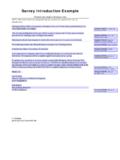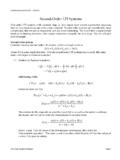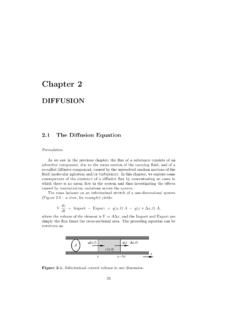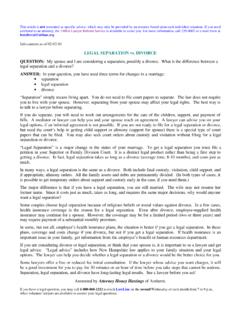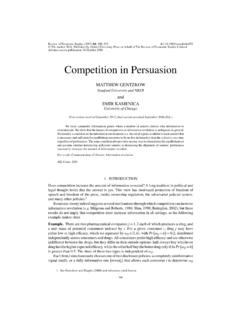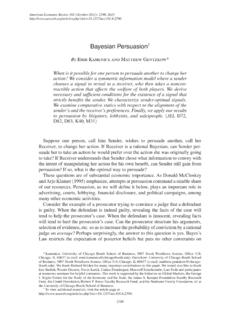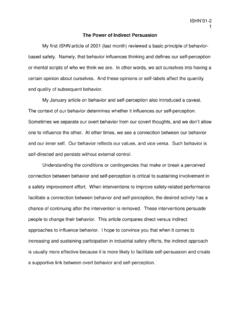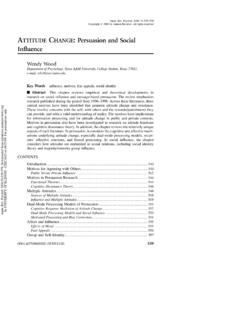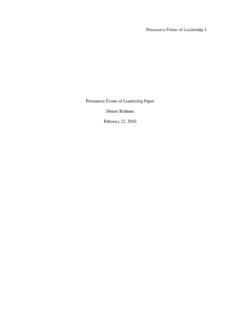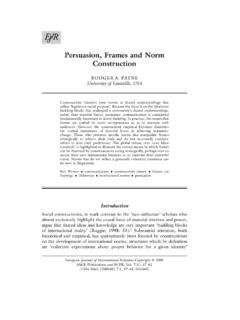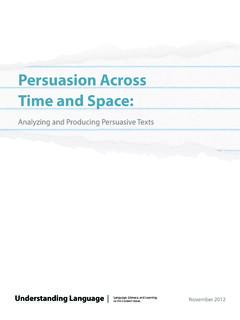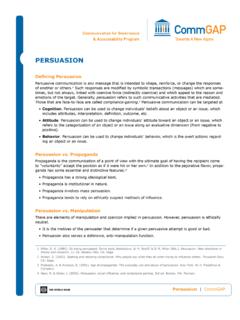Transcription of The Ancient Greeks and Modern Realism: Ethics, Persuasion ...
1 978 0 19 955627 402-Duncan-Bell-ch02 OUP299-Duncan-Bell(Typeset by SPi, Delhi)26 of 40 June 9, 200816:42 The Ancient Greeks and Modern Realism: ethics , Persuasion , and PowerRichard Ned INTRODUCTIONT here is widespread recognition that the realist tradition reached its nadir in neo- realism . In his unsuccessful effort to transform realism into a scientific theory,Kenneth Waltz, father of neorealism, denuded the realist tradition of its complex-ity and subtlety, appreciation of agency, and understanding that power is mostreadily transformed into influence when it is both masked and embedded in agenerally accepted system of norms.
2 Neorealism is a parody of keyterms like power and polarity are loosely and haphazardly formulated and itsscope conditions are left undefined. It relies on a process akin to natural selectionto shape the behaviour of units in a world where successful strategies are notnecessarily passed on to successive leaders and where the culling of less successfulunits rarely occurs. It more closely resembles an unfalsifiable ideology than itdoes a scientific theory, and its rise and fall has had little to do with conceptualand empirical advances.
3 Its appeal lay in its apparent parsimony and superficialresemblance to science; something that says more about its adherents that it doesabout the theory. Its decline was hastened by the end of the Cold War, whichappeared to many as a critical test case for a theory that sought primarily to explainthe stability of the bipolar world. The end of the Cold War and subsequent collapseof the Soviet Union also turned scholarly and public attention to a new range ofpolitical problems to which neorealism was decline of neorealism has encouraged many realists to return to their doing so, they read with renewed interest the works of great nineteenth- andtwentieth-century realists like Max Weber, E.
4 H. Carr, and Hans Morgenthau insearch of conceptions and insights relevant to contemporary international rela-tions. Weber and Morgenthau in turn were deeply indebted to the Greeks , as isthe broader tradition of classical realism . InThe Tragic Vision of Politics(2003), Isought to recapture the wisdom of that tradition through a close reading of thetexts of Thucydides, Carl von Clausewitz, and project here isless ambitious, and is limited to describing the fifth-century greek understandingof power and using it to critique Modern conceptions, especially those associatedwith 0 19 955627 402-Duncan-Bell-ch02 OUP299-Duncan-Bell(Typeset by SPi, Delhi)27 of 40 June 9, 200816.
5 4 The Ancient Greeks and Modern Realism27My argument draws on the writings of Aeschylus, Sophocles, Thucydides, andPlato. They differ in many ways, but give voice to a set of largely shared under-standings about human nature and social relations. They have much to teachus about the nature of community, how it is held together by affection andfriendship, the role of dialogue and Persuasion in creating these bonds, and theways in which the exercise of power can reinforce or undermine them. Their argu-ments, and mind, rely on the particularly rich greek lexicon, which allows a moresophisticated analysis of such concepts as power, hegemony, and Persuasion .
6 Thislexicon, and the manner in which they developed and deployed it, can enrich ourunderstanding of power in several important ways. It highlights the links betweenpower and the purposes for which it is employed, as well as the means used toachieve these ends. It also provides a conceptual framework for distinguishingenlightened from narrow self-interest, identifies strategies of influence associatedwith each, and their implications for the long-term survival of CONTEMPORARY CONCEPTIONSIn the field of International Relations, power has been used interchangeably asa property and a relational elision reflects a wider failure to dis-tinguish material capabilities from power, and power from influence.
7 Classicalrealists unlike many later theorists understood that material capabilities areonly one component of power, and that influence is a psychological Morgenthau insisted that influence is always relative, situation specific, andhighly dependent on the skill of Guzzini observes that this polit-ical truth creates an irresolvable dilemma for realist power cannot bedefined and measured independently from specific interactions, it cannot providethe foundation for deductive realist conceptions also stress material capabilities, but privilege economicover military power.
8 Some liberal understandings go beyond material capabil-ities to include culture, ideology, and the nature of a state s political-economicorder; what Joseph Nye, Jr. calls soft power . Liberals also tend to conflate powerand influence. Many assume that economic power hard or soft automaticallyconfers takes it for granted that the American way of life is soattractive, even mesmerizing, and the global public goods it supposedly pro-vides so beneficial, that others are predisposed to follow Washington s liberals, he treats interests and identities as objective, uncontroversial, constructivist writings differentiate power from influence, and highlightthe importance of process.
9 Habermasian accounts stress the ways in which argu-ment can be determining, and describe a kind of influence that can be fully inde-pendent of material capabilities. They make surprisingly narrow claims. ThomasRisse considers argument likely to be decisive only among actors who share acommon lifeworld , and in situations where they are uncertain about their978 0 19 955627 402-Duncan-Bell-ch02 OUP299-Duncan-Bell(Typeset by SPi, Delhi)28 of 40 June 9, 200816:428 The Ancient Greeks and Modern Realisminterests, or where existing norms do not apply or and other advo-cates of communicative rationality fail to distinguish between good and persua-sive arguments and they are by no means the same.
10 Nor do they tell us whatmakes for either kind of argument, or how we determine when an argument ispersuasive without reasoning backwards from an outcome. Thicker constructivistapproaches build on the Ancient greek understanding of rhetoric as the languageof politics, and consider the most persuasive arguments those that sustain orenable identities. According to Christian Reus-Smit, all political power is deeplyembedded in webs of social exchange and mutual constitution the sort thatescapes from the short-term vagaries of coercion and bribery to assume a struc-tural, taken-for-granted form ultimately rests on legitimacy.


